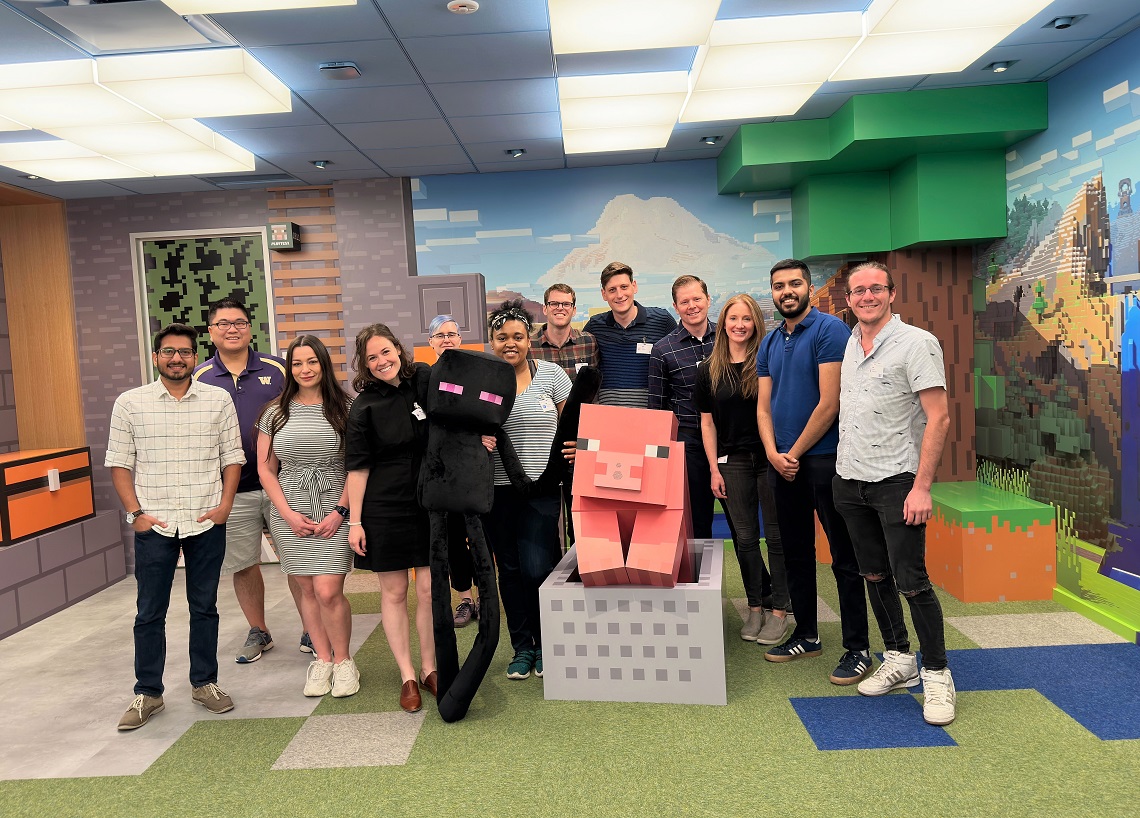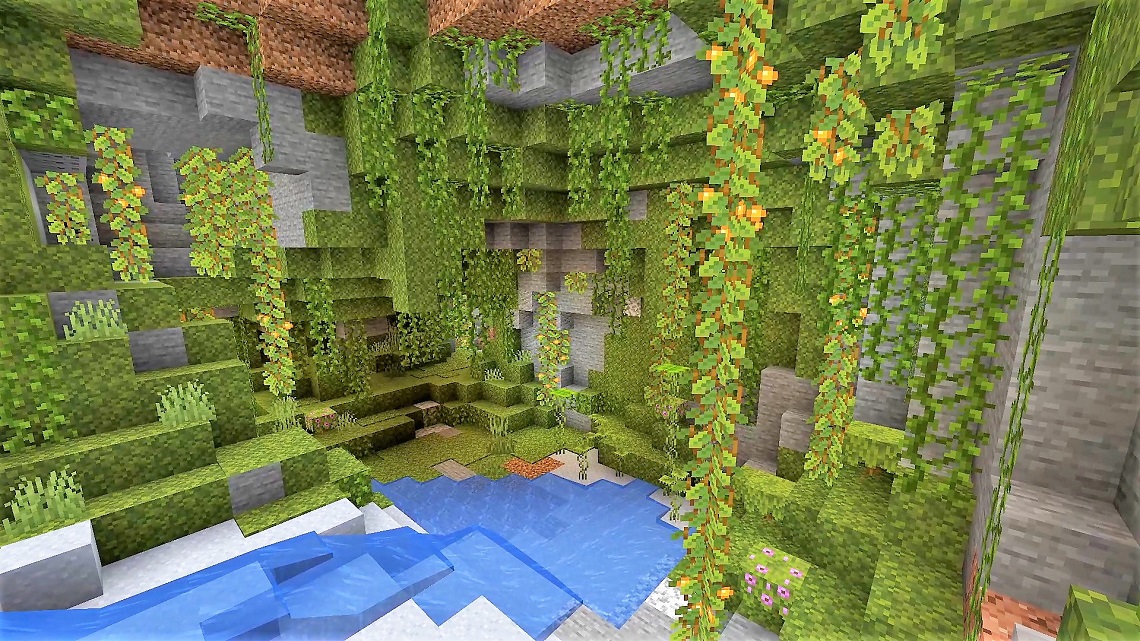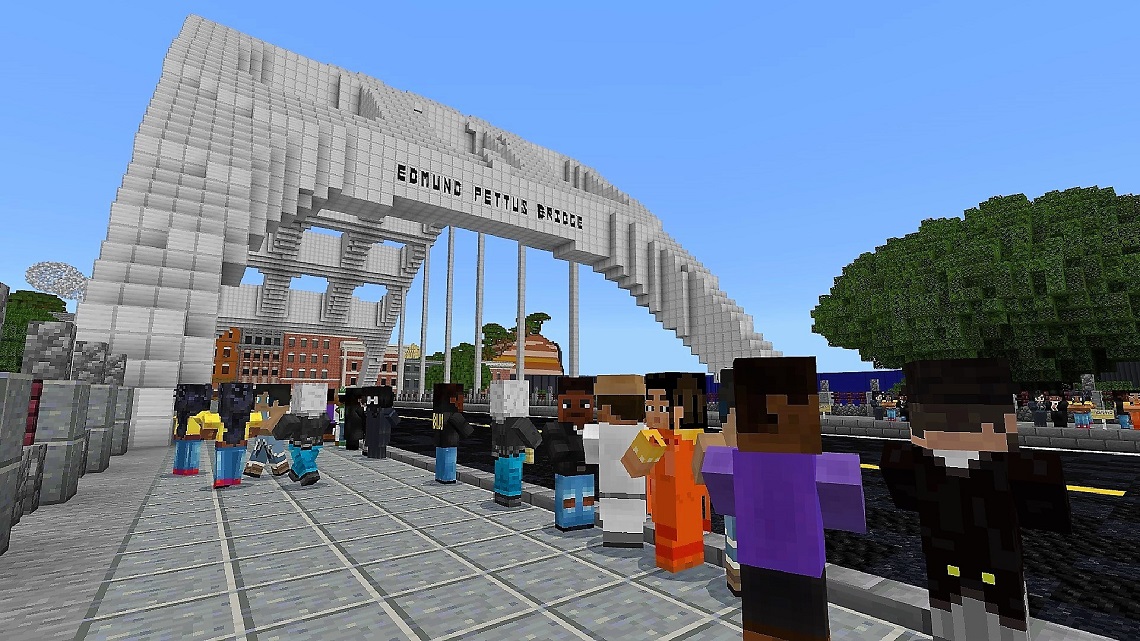Leveling Up!
Foster MBA students team with Mojang studios to boost engagement with the Minecraft creator community
Where is the Hollywood of video games?
To David Lau (MBA 2018), the answer is obvious: it is Seattle, the same city where in 2016 he was working at Amazon Games and studying at the Foster School of Business. But back then, he needed to get others interested in the question.
Depending on the year, the video game industry generates between three- to five-times the revenue of the theatrical and in-home entertainment industry. But when Lau founded the Level Up! student club, he says the opportunities in the video game industry weren’t well understood, even in a business school environment.

“At first, there was this perception that a job in video games was a distraction from a role in a ‘real’ industry, such as finance,” he says.
Lau and a small group of like-minded students set out to change that. The Foster School of Business is within a few square miles of companies including Mojang Studios, Amazon Games, Xbox Game Studios, Nintendo, as well as many independent publishers. “The greater Seattle area is one of the largest hubs for video game companies in the world,” Lau points out.
Lau and the initial members of the club emphasized to faculty and fellow students that these companies are hiring everyone from business development executives to technical program managers. This presents a unique opportunity for Foster graduates to help shape the dominant form of entertainment for the current generation of MBA students, far exceeding film, television, music or sports in terms of revenue.
“My vision was students should choose Foster specifically because they want to work in the video game industry,” he says.
A mutually beneficial collaboration with Mojang Studios
Today, that vision has become a reality. The Level Up! Interactive Entertainment Association has grown to 40 MBA students. Former Level Up! club members are working at companies in multiple roles. Lau has moved from Amazon Games to Mojang, the studio behind the massive hit game Minecraft. There he is partnering with students from the Level Up! club to help them gain valuable real-world experience in the video gaming industry, while Mojang benefits from MBA-caliber talent bringing fresh eyes to some of its biggest opportunities.
Last year, two teams of Level Up! club members worked on separate projects with Mojang. Outgoing Level Up! club president Joe Taaffe (MBA 2023), who is currently a product manager at Electronic Arts, led a program in which Foster students reached out to the community of Minecraft creators to determine how Mojang could best support and amplify their work.
Minecraft is a game that can be played by anyone. But the game supports and encourages its more advanced players to customize and modify the game, creating “skins” (altering the character appearance) or adding different aspects to the game, such as new items or even mini-games within the game. Those creations can be shared with fellow players.
“Minecraft is ultimately striving to be able to activate its broader creator community,” Taaffe says. “Our deliverable was focused on how we can make it easier for aspiring creators to share their creations.”
Engaging with the Minecraft community
Minecraft’s community has been a key component of the game’s continued success. While many games have huge first year sales, they either fade away or require big-budget new versions to remain relevant. Since Microsoft’s acquisition of Mojang in 2014, Minecraft has become the best-selling game of all time with millions of players around the world.
“Community is such an integral part into our ecosystem,” says Lau. “Minecraft is an open-ended experience. Everyone can enjoy Minecraft in very different ways, and then they can share how they enjoy the game with other people.”

The community’s creations enable players to keep the game experience fresh by adding new elements to the game created by either professional developers, who monetize their modifications, or their peers, who are creating for fun. And the more advanced players can graduate to making their own creations.

Taaffe and his colleagues reached out to these creators, and arrived at recommendations at how Mojang could further grow and develop the community, while still enabling creators to operate independently.
“What makes Minecraft so amazing is how people innovate within its world,” Taaffe says. “People build these stunningly intricate worlds, and there’s a lot of power in that. They’ve used the game to create these innovative tools to help other creators build as well. We spoke with some of these creators to understand the challenges they have creating within the Minecraft world and sharing their creations with other people.”

Minecraft is played by people of all ages and is especially popular among children. So, safety is one of Mojang’s highest priorities. This presents an interesting business challenge of balancing empowering creators while still ensuring a welcoming experience appropriate for all ages, especially in a multiplayer environment.
“One of the creators we talked to was 14 years-old,” Taaffe says. “Minecraft has always been very careful to make sure the game is kid friendly. We don’t want to break that trust. So, as part of our project we were painting the picture of how the video game world is changing, with generative AI making it easier for anyone to be creating, and the opportunities and challenges that presents.”
Targeting social media
Separately, this year’s Level Up! president Brady Lemons (MBA 2024) and his team were focused on out-of-game community channels, such as social media sites and streaming platforms. Lemons’ group was tasked with delivering an econometric analysis of sales and revenue based on social media activity.

“We learned that there is a large overlap between the different functional areas of their business,” Lemons says. “We used information from the data science team and from the marketing team to evaluate the impact of the social communities.”
Mojang can take these learnings and use them to help determine how to most efficiently target its content and channel marketing efforts. Social media is an essential component of reaching the player pool, but without intelligence on what content resonates and impacts business metrics, companies can misallocate budget and resources.
“I thought this was an interesting problem to work on,” Lau says. “We gave them a huge responsibility. And they produced a good set of initial findings and patterns, which enables us to make better-informed decisions on further investments in this area.”
Creating gaming industry job opportunities
And while Mojang benefited from the analysis the Foster teams provided, the students gained valuable experience working on real-world business challenges.
“It’s really a win-win. Mojang gets the benefit of a fresh perspective,” says Lemons. “And for us it was an opportunity to tackle an actual business problem. How do we approach it? How do we problem solve? And how do we use data to help us find the answer?”
Which is exactly what Lau had in mind for the club initially. One of the aspects of the project he is most proud of is that it solves the “Catch-22” of students not being able to be hired without experience, but not able to get experience at major companies without being hired.

“This is not just a made-up internship,” he says. “It’s a project where, for an entire academic quarter, Foster students work on a real-life problem, and the studio actually takes into account the findings and the research they develop. Now they can put that on a resume, and it enables them to get a foot in the door.”
Going forward, the club is working on furthering its partnerships with other video game companies, which will be made easier as more Foster alumni enter the industry.
“I’ve been lucky in that the leaders that I appointed, and the subsequent leaders that they have appointed, have grown the Level Up! beyond just an industry club,” Lau says. “First and foremost, it’s the great partner of video game companies in the greater Seattle area.”
Minecraft images courtesy of Mojang Studios.
